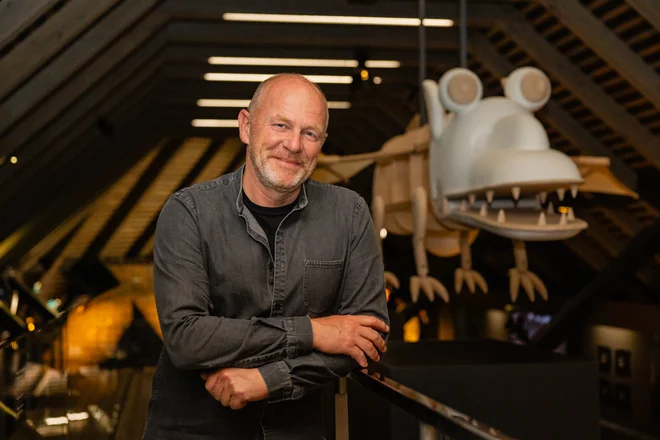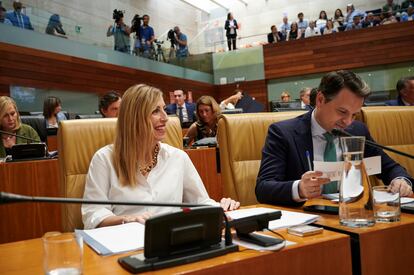Depending on the canton of living, the examination is free

Lucerne women have to pay breast cancer.
Switzerland is the only country to have no national cancer strategy in Central Europe. The parliament actually wanted to change that. But the authorities sleep over the mandate – which now causes anger.
Many German -speaking Swiss people have to pay CHF 182,80 for a examination – while mammography is free in western Switzerland.
The bare numbers are unsightly: in international comparison, Switzerland is one of the countries with the highest cancer rates. In the ranking of cancer per capita, the country occupies Countries examined 17th out of 186. Some diagnoses are particularly common. Every third woman with a cancer diagnosis Has breast cancer. Therefore, the medical guidelines recommend that you go to breast cancer screening every two years.
That sounds like a simple measure to prevent deaths from breast cancer. But it is controversial. Because there is no national strategy in Switzerland, instead there is a cantonal patchwork. Some cantons such as St. Gallen or Solothurn cover the costs for a two-year breast cancer examination for all of their Ü50 residents and even offer them for doctor's appointments. Uri women, on the other hand, have to organize the examination themselves and, above all, pay themselves. Cost: CHF 182.80.
Switzerland throws off the government by the government by years
A similar picture is shown in colon cancer screening, which is also recommended from the age of 50 and is paid by basic insurance in some cantons franchise. Colon cancer affects men a little more often, but is recommended for regular screening control in both sexes. There are also cantonal differences here.
« Because of the patchwork, there are still social inequalities in Switzerland, » writes Swiss Cancer Screening, the umbrella organization of the cancer early detection programs. « A national program and a corresponding strategy would be sensible and necessary. » This is also desirable from a financial point of view because early detection would help save health costs. Small tumors diagnosed early can be treated with less effort than large ones in the late stage.
The parliament also recognized that. It demanded in early 2024 – Against the will of the Federal Council – The development of a national cancer plan, as the four large neighboring countries know it. The demand is not revolutionary. Because Switzerland has already had a national strategy. But in 2020 the Federal Council decided that it was no longer necessary. The private association oncosuisse does so well that « there is no further coordination needs at the political level ».
A misjudgment, as is shown today. Switzerland is falling back in international comparison in cancer. Only 60 percent of the population have access to breast cancer screening programs. France and Germany, on the other hand, are already one step further and have also established a national program for cervix screen screening with HPV tests. Switzerland is coming Despite two years old recommendations of the Swiss Cancer Screening Committee, however. Also because the Federal Office of Health has been thinking about the costs and benefits of the programs for several years without making a decision about the future strategy.
Parliament is annoying over lame executive authorities
The parliamentarians in the Bundeshaus are now getting upset about this. Council of States Damian Müller (FDP/LU) asked last September in one Interpellation slightly annoyed « When is the potential of screening programs finally used? » The Federal Council replied that he did not want to present the long -demanded national cancer plan until 2026 – two years after it was commissioned.

In the near abroad, well -established standard for a long time now: mammographies for cancer screening.
The Association oncosuisse already has one on its own Masterplan 2025 Developed, which identified the most important topics and could serve as the basis for a strategy. In the paper, Oncosuisse demands that cantonal differences should be eradicated and that more people have access to cancer screening programs. But there are increasing doubts as to whether the will is on the part of the will to actually introduce a uniform cancer prevention strategy with screenings.
At a request for this newspaper for the cantonal patchwork in the pension programs, the Federal Office of Health wrote: « A national cancer screening program is not a decision of the Federal Office of Health, but requires a political decision. » The ball lies with the interior of Federal Councilor Elisabeth Baume-Schneider. There you see the demand of the parliament for a national cancer plan, however, not as a sufficiently strong mandate. However, this would be wrong to remove the cantonal injustices.
« The federal government has no legal basis that would enable the structure and implementation of a national cancer screening program, » the Federal Council justifies in its response to Damian Müller. This finds this « unsatisfactory » and told this newspaper: « The keeping of the Federal Council is despondent. » From Müller's point of view, the authorities with the parliamentary order have the competence to play a coordinating role. « The federal government is now on the move to integrate the cantons and use the necessary resources. » It has to be taken forward so that people not only have access to cancer detection programs depending on their canton of residence.
Whether Damian Müller can convince the authorities with his argument will also be shown next Thursday. Then the discussion on his interpellation takes place in the Council, and the government will have to answer.
Notice
You can find detailed information on the costs and processes of cancer screenings in your canton here.








